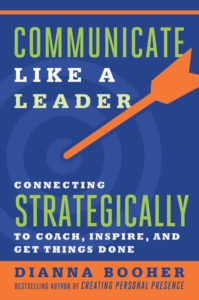


Not a board of directors. Not a mentor. But do you need a team of trusted advisors as a sounding board to help you grow your leadership skills? It’s an option worth considering. The personal “advisory board” I’m suggesting is a lose network of trusted colleagues from whom you can get advice in all areas of work and life.
Your personal “advisory board” benefits your organization as well. The more you can “work your network” for information and leads, the more money you save your employer.
Most professionals will want and need these people:
–Industry experts or consultants in and out of other organizations
–Counterparts in other organizations, departments, divisions, or regions
–Suppliers who service your industry
–Friendly competitors
–Contacts within client organizations (three deep—your contact, your contact’s boss, you contact’s boss’s boss) (Any of these may become your “sponsors” in different situations—from club membership to work projects.)
–Contacts within your own organization who are two levels above you and two levels below you
–A technology specialist
–A marketing specialist
–A social media specialist
–An attorney (generalist)
–A financial investment advisor
–A CPA and tax specialist
–A Realtor®
–A physician
–A spiritual counselor
You’ll notice that this list gets very personal toward the end. That’s because your life and work decisions involve ethics, health, compensation, investment opportunities, stress reduction, personal relationships, and life balance. And all of these personal concerns obviously affect your home life and work life.
For starters, …
Serve: Give of your time. Get involved so your name is top of mind. Volunteer for committees. Go to work for a charitable cause.
Become a resource: Send along articles, links, blogs, books, or ezine tips in specialty niches that the other person may not be aware of. Provide data that they’ll find usable.
Provide introductions: Two colleagues of mine pass along an introduction to me at least once a month—someone they think would benefit from my coaching on executive presence or book writing/publishing. For them, cyber-introductions have become a helpful habit.
Be a sounding board yourself: Occasionally call to ask what’s going on with them and then listen. Show sincere interest and offer ideas when you can. Phone calls have become a rarity that makes people appreciate the attention—as long as that attention is for the other person’s benefit, not yours.
Leaders understand the strategic importance of an active personal team of advisors. Maintain meaningful communication to keep your network strong, expand its reach, and increase your leadership skills.
Learn more how to talk to advisors, and advisees, with Communicate Like a Leader: Connecting Strategically to Coach, Inspire, and Get Things Done
